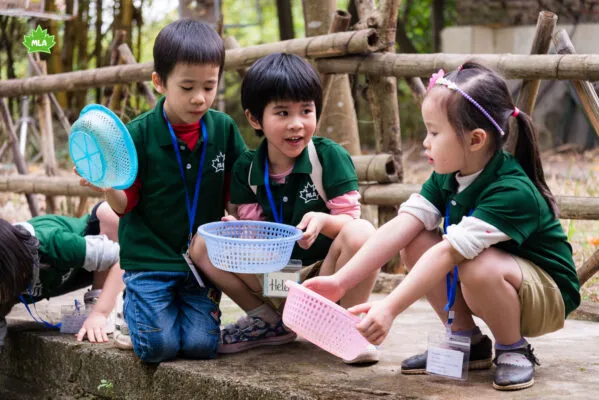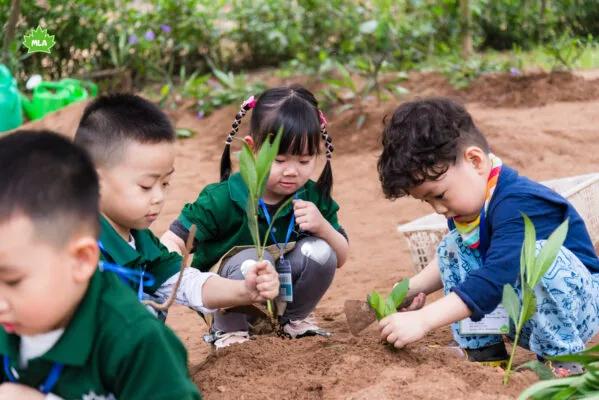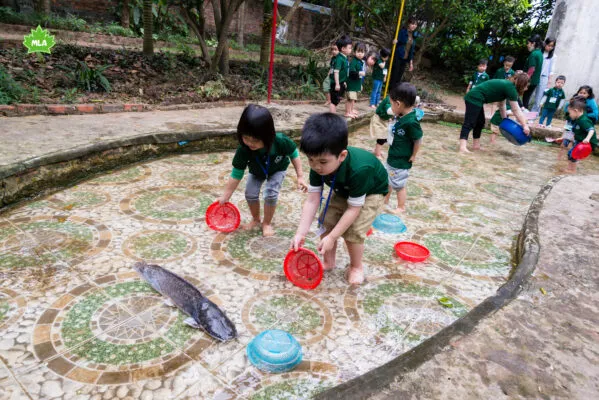The early years, especially preschool age, are a golden time for children to explore and learn about the world around them. This need not only helps them accumulate knowledge and social skills but also develops their creative thinking abilities. Therefore, creating opportunities for children to interact with nature through educational farms is extremely important, bringing practical and beneficial learning experiences.
What is an Educational Farm?
An educational farm, also known as an agritourism farm, is a unique and nature-based learning model designed specifically for children aged 3 to 15. This model creates opportunities for children to practice life skills and learn practical lessons through direct interaction with the agricultural and natural environment. Instead of just learning theory from books, children experience real-world activities from planting, raising animals to processing agricultural products, thereby developing comprehensively both physically and mentally.

Amazing Benefits of Educational Farms
Taking children to participate in activities at educational farms brings countless benefits, not only in terms of education but also in the overall development of children:
- Develop motor skills: Children are free to play, run, and participate in physical games such as grass sliding, soccer, boat racing, which helps improve physical health, agility, and dexterity.
- Stimulate creativity and thinking: The diverse and rich natural environment stimulates children’s curiosity and exploration, thereby fostering creativity and logical thinking.
- Develop senses: Children are exposed to many types of plants, animals, soil, water… helping to develop all senses, enhancing the ability to perceive and recognize the world around them.
- Learn practical knowledge: Children learn about the process of planting, raising animals, harvesting agricultural products, understanding the value of labor and the origin of food.
- Respect nature and the environment: Through activities such as taking care of plants and animals, children learn to love and protect nature and the living environment.
- Develop social skills: Participating in group activities, children learn how to work together, share, cooperate, and respect the opinions of others.
- Boost self-confidence: When performing tasks themselves, children feel proud of themselves, thereby increasing self-confidence and independence.

Fun Activities at Educational Farms
Educational farms often offer many diverse and attractive activities, suitable for the age and interests of children:
- Physical games: Grass sliding, soccer, boat racing, mountain climbing…
- Nature exploration: Visiting gardens, fish ponds, animal husbandry areas…
- Planting and harvesting: Sowing seeds, watering plants, weeding, harvesting vegetables and fruits…
- Animal care: Feeding, bathing, petting animals…
- Participating in folk games: Tug of war, bamboo dancing, blindfolded goat catching…
- Learning about traditional crafts: Pottery, weaving, making cakes…
Some Typical Educational Farms in Vietnam
Currently, the educational farm model is increasingly developing in Vietnam, with many locations across the country. Here are some typical educational farms that you can refer to:
- Ba Tan Farm (Dong Nai): An ideal place for children to experience rural life with many interesting activities such as planting vegetables, feeding animals, and participating in folk games.

- EcoPark (Hanoi): Green space with many educational activities about the environment and agriculture, suitable for children to explore and learn.
- Dong Que Ba Vi (Hanoi): Farm model combining resort with many cultural and traditional culinary experiences.
- The Bamboo Village (Ho Chi Minh City): Ecotourism area with many recreational, entertainment and environmental education activities, suitable for the whole family.
Choosing a Suitable Educational Farm
To choose a suitable educational farm for your child, you should consider the following factors:
- Child’s age and interests: Choose a farm with activities suitable for your child’s age and interests.
- Distance and travel time: Choose a farm with a suitable distance so as not to spend too much travel time.
- Quality and reputation of the farm: Find out information about the farm, read customer reviews to ensure quality and reputation.
- Cost: Refer to ticket prices and incurred costs to choose a farm that suits your family budget.
Conclusion
Educational farms are a meaningful learning and playing model for children, bringing practical and beneficial experiences, helping them develop comprehensively both physically and mentally. Create opportunities for your children to explore and experience the wonderful natural world at educational farms across Vietnam.